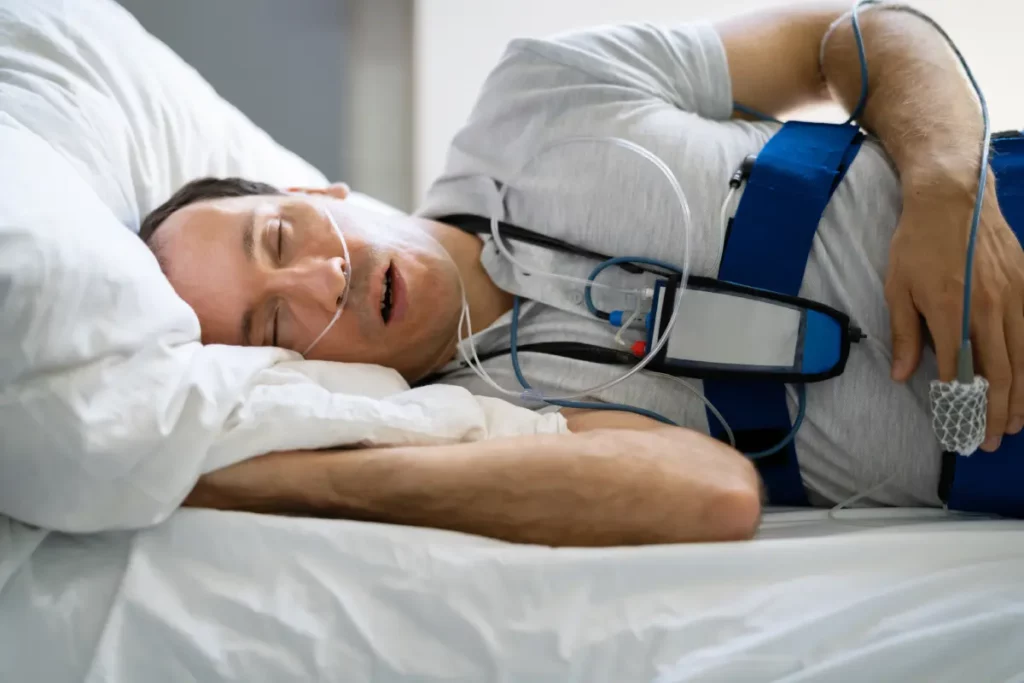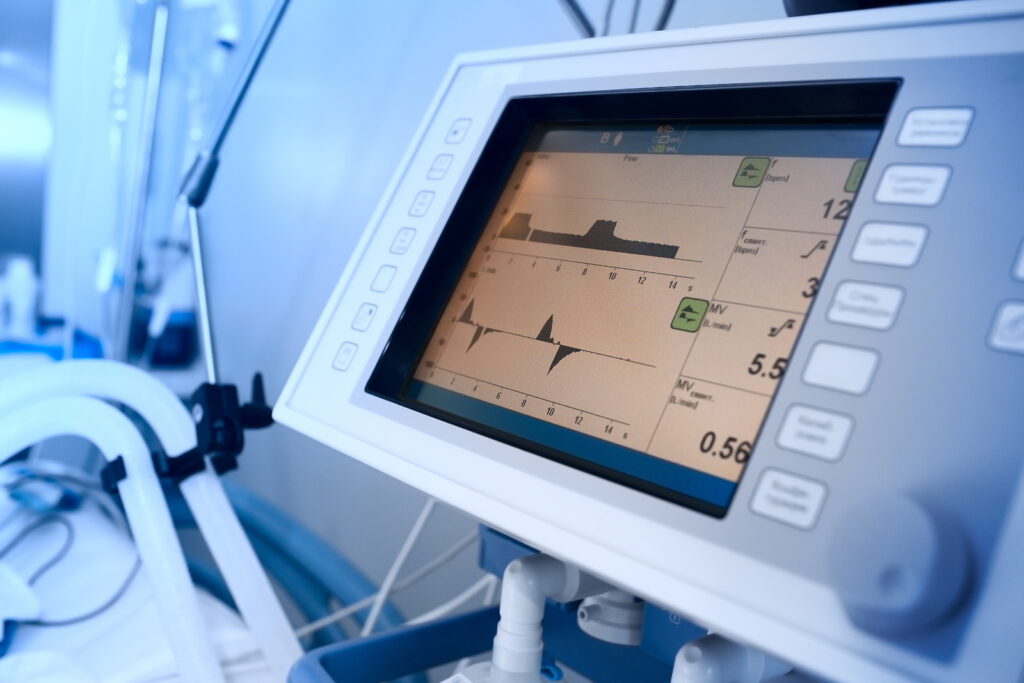Sleep disorders affect millions of Australians, impacting their daily lives and long-term health. The rise of home sleep studies in Brisbane has transformed the landscape of sleep disorder diagnosis, offering patients a practical alternative to traditional hospital-based testing.
These innovative diagnostic tools, provided by companies like Sleep Solutions Australia, allow individuals to undergo comprehensive sleep assessments from the comfort of their own beds. The process proves particularly effective in identifying conditions such as obstructive sleep apnea – a common sleep disorder characterised by repeated breathing interruptions during sleep.
Home sleep studies deliver several key advantages:
- Natural sleep environment for more accurate results
- Elimination of hospital stays
- Reduced waiting times for diagnosis
- Cost-effective testing options
- Medicare coverage for eligible patients
The convenience of home sleep study Brisbane has made sleep disorder diagnosis more accessible to Brisbane residents. This advancement in medical technology enables healthcare providers to collect vital sleep data while patients maintain their regular sleep routines in familiar surroundings.
How Do Home Sleep Studies Work?
The home sleep study process begins with a GP referral to a sleep specialist or accredited sleep service provider. Upon receiving the referral, patients undergo an initial consultation to assess their symptoms and determine suitability for home-based testing.
The patient pathway typically follows these steps:
- Initial Assessment
- Medical history review
- Sleep questionnaire completion
- Discussion of symptoms and concerns
- Equipment Setup
- Patients receive a portable monitoring device
- Professional demonstration of proper equipment use
- Instructions for optimal placement of sensors
- Overnight Recording
- Small sensors attached to specific body areas
- Monitoring of breathing patterns
- Recording of oxygen levels and heart rate
- Tracking of body position and movements
The fitting process can occur either at a clinic or in the patient’s home. A sleep technician demonstrates the correct placement of monitoring devices, including:
- A small nasal cannula to measure airflow
- Chest and abdomen bands to record breathing effort
- A finger probe to monitor oxygen levels
- Additional sensors for heart rate and position tracking
Patients sleep with the equipment for one night, recording vital sleep data. The next morning, they return the device to the clinic where sleep specialists analyse the collected information to determine the presence and severity of any sleep disorders.
Learn more on: Sleep Testing in Adelaide Find the Right Option for Your Needs and Budget

Understanding Home Sleep Studies
A home-based sleep study, such as those offered in Perth, Melbourne, Sydney, and Hobart, captures vital physiological data through sophisticated portable monitoring equipment during sleep. This diagnostic tool records essential sleep parameters through small sensors attached to specific body areas.
What Does a Home Sleep Study Involve?
The portable monitoring device includes:
- A small chest belt to measure breathing effort
- A nasal cannula to monitor airflow
- A finger probe to track oxygen levels
- Small sensors on the chest to record heart rate
- Position sensors to detect sleep posture changes
These devices collect comprehensive data throughout the night, measuring:
- Respiratory Events: Apneas, hypopneas, and breathing patterns
- Oxygen Saturation: Blood oxygen levels and desaturation episodes
- Heart Activity: Pulse rate variations and cardiac responses
- Sleep Position: Body positioning and movement patterns
- Snoring Intensity: Sound recordings to assess snoring severity
- Movement Analysis: Leg movements and restlessness during sleep
How Does a Home Sleep Study Work?
The equipment automatically records and stores this information for analysis by sleep specialists. Modern devices are designed for minimal interference with normal sleep patterns, featuring lightweight components and unobtrusive sensors. The collected data creates a detailed picture of sleep quality and potential breathing disturbances, enabling accurate diagnosis of conditions such as sleep apnoea. Learn more about disturbances on https://pmc.ncbi.nlm.nih.gov/articles/PMC3116346/
Benefits of Home Sleep Studies over Traditional In-Lab Testing
Home sleep studies offer several advantages over traditional laboratory-based sleep testing. The biggest benefit is the natural sleep environment – patients can stick to their usual bedtime routines and sleep in their own beds, resulting in more accurate test results that reflect their typical sleep patterns.
The familiar setting solves common problems associated with lab testing:
- No adaptation period required – patients can skip the “first-night effect” often experienced in sleep labs
- Regular sleep schedule maintained – participants can follow their normal bedtime routines
- Reduced anxiety levels – sleeping in a familiar environment helps lower stress
- Cost-effective option – home studies usually cost less than lab-based alternatives
The non-invasive nature of home sleep studies adds another layer of comfort. Patients wear lightweight, portable monitoring devices that allow free movement during sleep. These devices:
- Attach easily with simple straps and sensors
- Create minimal disruption to sleep
- Allow bathroom visits without complicated disconnection procedures
- Enable natural sleeping positions throughout the night
For parents with young children or individuals with mobility challenges, home sleep studies eliminate the need for overnight stays away from home. This accessibility makes it easier for patients to undergo necessary sleep testing while still fulfilling their daily responsibilities and family commitments.
The combination of comfort, convenience, and clinical accuracy makes home sleep studies an increasingly popular choice for diagnosing sleep disorders in Brisbane.
The Role of Air Liquide Healthcare in Brisbane’s Home Sleep Testing Landscape
Air Liquide Healthcare is Australia’s largest provider of home sleep apnea studies, offering comprehensive sleep solutions throughout Brisbane and beyond. The organisation has a wide network that includes well-known sleep brands such as SNORE Australia, Healthy Sleep Solutions, Mycroft, Complete Care, and Sleep Disorder Australia (SDCA).
Air Liquide Healthcare’s Integrated Approach to Sleep Health
The company’s holistic approach to sleep health combines:
- Diagnostic Excellence: Professional home-based sleep studies using advanced recording equipment
- Treatment Implementation: Specialised CPAP therapy initiation and titration programs
- Ongoing Support: Regular check-ups and therapy guidance
- Equipment Access: Direct partnerships with leading CPAP manufacturers
Rigorous Medical Oversight for Accurate Diagnosis and Treatment
One of the key features of Air Liquide Healthcare’s service is its strict medical supervision. Every patient’s diagnosis and treatment plan is reviewed by qualified Sleep Physicians, ensuring medical precision and suitable care pathways.
Seamless Experience from Diagnosis to Long-Term Management
The organisation’s comprehensive patient pathway provides a smooth experience from initial diagnosis to long-term management of Obstructive Sleep Apnea. This methodical approach has established Air Liquide Healthcare as a reliable provider in Brisbane’s sleep health scene, assisting thousands of patients in their quest for improved sleep health. To learn more about management click here.
Making Home Sleep Studies Accessible: Medicare Coverage and Private Health Insurance Considerations
Medicare coverage plays a vital role in making home sleep studies accessible to eligible Australians. The Medicare Benefits Schedule (MBS) provides rebates for diagnostic sleep studies when specific criteria are met:
Medicare Eligibility Requirements:
- Referral from a qualified medical practitioner
- Presence of relevant symptoms indicating sleep disorders
- Meeting specific clinical criteria for suspected sleep apnoea
The Medicare rebate covers:
- Initial diagnostic sleep study
- Follow-up studies when clinically necessary
- Professional interpretation of results
Private health insurance can provide additional coverage options for sleep studies and subsequent treatments. Different levels of cover offer varying benefits:
Private Health Insurance Benefits:
- Gap coverage for out-of-pocket expenses
- Access to preferred providers
- Coverage for CPAP equipment
- Ongoing therapy support services
Patients should contact their private health insurer to understand:
- Specific policy inclusions
- Waiting periods
- Annual claim limits
- Provider networks
The combination of Medicare rebates and private health insurance makes home sleep studies a cost-effective diagnostic option for many Brisbane residents. Consulting with healthcare providers about available rebates helps patients make informed decisions about their sleep health management.
Who is a Suitable Candidate for a Home Sleep Study?
Home sleep studies are an effective diagnostic tool for specific patient profiles. Medical professionals typically recommend these studies for individuals who show:
Classic Sleep Apnea Symptoms:
- Loud, persistent snoring
- Witnessed breathing pauses during sleep
- Daytime fatigue or sleepiness
- Morning headaches
- Difficulty concentrating
Straightforward Medical Cases:
- No significant heart conditions
- Absence of other sleep disorders
- Stable medical history
- Independent mobility
Patients with suspected mild to moderate sleep apnea are ideal candidates for home-based testing. These individuals should have enough cognitive ability to follow instructions and operate simple monitoring equipment.
Exclusion Criteria:
- Severe heart or lung conditions
- Complex sleep disorders
- Limited mobility requiring assistance
- Cognitive impairments affecting device operation
A GP or sleep specialist determines if a patient is suitable through careful assessment of their medical history, symptoms, and physical examination. Home sleep studies are particularly suitable for Brisbane residents who have regular sleep schedules and can create appropriate sleeping conditions in their home environment.
For those living in other areas such as Adelaide or Canberra, home sleep studies can also be carried out effectively. The decision to go ahead with a home sleep study depends on a professional medical evaluation, ensuring accurate diagnosis and the best outcomes for patients.
After the Test: Understanding Your Diagnosis and Treatment Options
The analysis of home sleep study data involves a comprehensive evaluation by qualified sleep specialists. These medical professionals examine multiple parameters recorded during the night to establish a diagnosis and determine the severity of any sleep-related conditions.
Key Parameters Analysed:
- Apnoea-Hypopnea Index (AHI)
- Oxygen desaturation levels
- Heart rate variations
- Sleep position data
- Breathing patterns
- Snoring intensity
Based on these measurements, sleep specialists categorise obstructive sleep apnoea severity into three levels:
- Mild OSA: 5-15 events per hour
- Moderate OSA: 15-30 events per hour
- Severe OSA: More than 30 events per hour
The diagnostic report includes detailed insights about sleep quality, breathing patterns, and specific recommendations for treatment. Treatment options vary depending on the severity of the condition:
Common Treatment Pathways:
- CPAP (Continuous Positive Airway Pressure) therapy
- Mandibular advancement devices
- Lifestyle modifications
- Weight management strategies
- Sleep position therapy
Sleep specialists might recommend additional testing or in-lab studies if the home sleep test results are inconclusive or indicate complex sleep disorders requiring more detailed investigation.
Conclusion
Home sleep studies are a major breakthrough in diagnosing sleep disorders, bringing professional-grade testing directly into the bedrooms of Brisbane residents. This convenient approach removes common obstacles to diagnosis, such as long hospital waiting lists and the discomfort of sleeping in unfamiliar places.
By combining advanced portable monitoring devices, Medicare coverage, and expert analysis, we have created a strong diagnostic pathway for individuals with sleep-related issues. These home-based studies provide accurate results while ensuring patient comfort and allowing them to maintain their daily routines.
The introduction of home sleep studies through providers like Air Liquide Healthcare has revolutionised the way sleep disorders are diagnosed in Brisbane. This patient-focused approach allows for quick identification of conditions like obstructive sleep apnea, resulting in faster treatment and better health outcomes.
Home sleep studies are a prime example of medical innovation – bringing complex diagnostic tools into patients’ homes while upholding high clinical standards and professional supervision.

